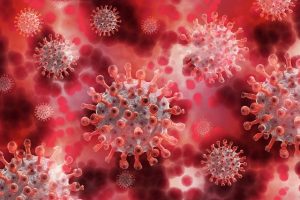Phase II-III trials of stem cell therapy for ischemic stroke did not meet primary endpoint
- Mifepristone: A Safe and Effective Abortion Option Amidst Controversy
- Asbestos Detected in Buildings Damaged in Ukraine: Analyzed by Japanese Company
- New Ocrevus Subcutaneous Injection Therapy Shows Promising Results in Multiple Sclerosis Treatmen
- Dutch Man Infected with COVID-19 for 613 Days Dies: Accumulating Over 50 Virus Mutations
- Engineered Soybeans with Pig Protein: A Promising Alternative or Pandora’s Dish?
- Severe Fever with Thrombocytopenia Syndrome (SFTS): A Tick-Borne Threat with High Mortality
Phase II-III trials of stem cell therapy for ischemic stroke did not meet primary endpoint
- Red Yeast Rice Scare Grips Japan: Over 114 Hospitalized and 5 Deaths
- Long COVID Brain Fog: Blood-Brain Barrier Damage and Persistent Inflammation
- FDA has mandated a top-level black box warning for all marketed CAR-T therapies
- Can people with high blood pressure eat peanuts?
- What is the difference between dopamine and dobutamine?
- How long can the patient live after heart stent surgery?
Phase II-III trials of stem cell therapy for ischemic stroke did not meet primary endpoint.
On May 20, Athersys announced that the Phase II/III study of its partner Healios’ stem cell therapy product MultiStem (invimestrocel) in ischemic stroke patients in Japan, code-named TREASURE, failed to meet the primary endpoint.

This randomized, double-blind, placebo-controlled study enrolled 206 patients with moderate to moderately severe ischemic stroke (baseline NIHSS 8-20) who received a single intravenous infusion within 18-36 hours of stroke onset MultiStem or placebo treatment.
The main findings of the study are as follows:
- Improved “independence” and “good outcomes” on pre-specified measures of functional assessment, such as: Modified Rankin Scale (mRS) score ≤2, Barthel Index ≥95, and overall recovery;
- The primary endpoint of an “excellent outcome” at day 90 was not met;
- Overall, substantially all measures of functional assessment showed sustained improvement over a one-year period, supporting long-term impact and sustained improvement in patients’ quality of life;
- The TREASURE results suggest that there is a high probability of success in mRS, the primary outcome measure of Athersys’ ongoing MASTERS-2 study;
- There were no substantial differences in safety outcomes, including mortality and life-threatening adverse events, between the treatment and placebo groups.

The MASTERS-2 study is a Phase III clinical trial conducted by Athersys in the U.S., Europe and Asia Pacific to evaluate MultiStem in ischemic stroke and enrolled 300 patients.
Based on current registry information, the MASTERS-2 population is expected to be younger and have a lower mean stroke severity than the TREASURE population.
The larger the number, the more likely the trial will be successful.

Clinical studies conducted by MultiStem
MultiStem cell therapy (invimestrocel) is an allogeneic bone marrow-derived multipotent adult progenitor cell (MAPC) with the ability to promote tissue repair and healing in a variety of ways, such as by producing therapeutic factors in response to signals of inflammation and tissue damage.
MultiStem represents a unique “off-the-shelf” stem cell product candidate that can be manufactured in a scalable manner and stored in frozen form for several years, and can be administered without tissue matching or immunosuppression.
MultiStem mechanism of action
Stroke is the leading cause of death and severe disability worldwide, with significant clinical needs.
Currently, there are nearly 17 million stroke patients worldwide, with more than 2 million stroke victims each year in the United States, Europe, and Japan.
Ischemic stroke, the most common form of stroke, occurs when blood flow in the brain is blocked, cutting off the supply of oxygen and nutrients, causing nerve damage that can lead to long-term or permanent disability.
Current treatment options for patients with ischemic stroke are limited, and the only available treatment is the administration of the clot-dissolving agent tPA or “thrombectomy” or surgical intervention to remove the clot, which must be performed within hours of the stroke.
Due to the limited time window, only a small proportion of stroke patients receive currently available treatments, and most patients receive only supportive or “palliative” care.
Phase II-III trials of stem cell therapy for ischemic stroke did not meet primary endpoint
(sourceinternet, reference only)
Disclaimer of medicaltrend.org
Important Note: The information provided is for informational purposes only and should not be considered as medical advice.



